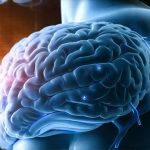Gastroesophageal reflux disease (GERD) is often perceived as simply a digestive issue – heartburn, acid indigestion, perhaps some discomfort after meals. While these physical symptoms are certainly the hallmark of GERD, its impact can extend far beyond the gut, subtly but significantly affecting cognitive functions like concentration and focus. Many individuals experiencing chronic GERD find themselves struggling with mental clarity, finding it difficult to stay on task, or feeling mentally fatigued even after adequate rest. This isn’t merely a matter of discomfort being distracting; there are complex physiological links between the digestive system and the brain that explain why GERD can impair cognitive performance.
The connection is multifaceted. Chronic inflammation associated with GERD, disrupted sleep due to nighttime symptoms, nutritional deficiencies potentially caused by reduced food absorption, and even psychological stress stemming from ongoing health concerns all play a role in diminishing our ability to think clearly and maintain focus. Understanding these links is crucial for recognizing the broader impact of GERD and seeking appropriate management strategies that address not just the physical symptoms but also their cognitive consequences. Ignoring this connection can lead to decreased productivity at work, strained relationships, and an overall diminished quality of life.
The Gut-Brain Connection & Cognitive Function
The intricate relationship between our digestive system and brain—often called the gut-brain axis—is increasingly recognized as a key factor in mental well-being and cognitive function. This isn’t simply metaphorical; it’s a demonstrable two-way communication network involving neural, hormonal, and immunological pathways. The vagus nerve, for example, acts as a direct line of communication, transmitting signals between the gut and brain. When the gut is inflamed or distressed – as often happens in GERD – these signals can impact brain activity and function.
Chronic inflammation triggered by acid reflux isn’t confined to the esophagus; it can create systemic inflammation throughout the body, including the brain. This neuroinflammation has been linked to impaired cognitive functions such as memory, attention, and executive functioning. Furthermore, the gut microbiome—the trillions of bacteria residing in our digestive tract—plays a vital role in producing neurotransmitters like serotonin, which are crucial for mood regulation and cognitive performance. GERD and its associated treatments (like proton pump inhibitors) can sometimes disrupt this delicate microbial balance, potentially impacting neurotransmitter production and further contributing to cognitive difficulties.
The impact extends beyond inflammation. The constant discomfort and worry related to GERD symptoms create chronic stress, which elevates cortisol levels. Prolonged exposure to high cortisol is known to negatively affect the hippocampus—a brain region vital for learning and memory—and can shrink its volume over time, leading to deficits in cognitive abilities. Essentially, the chronic physiological and psychological burden of GERD creates a perfect storm for impaired concentration and focus.
Sleep Disruption & Cognitive Impairment
A hallmark of GERD is nocturnal reflux, or acid coming up while you sleep. This can cause significant sleep disruption, even if you don’t fully wake up. Micro-arousals—brief awakenings that don’t register in conscious memory—are common in people with GERD, and these fragmented sleep patterns dramatically impact cognitive performance.
Sleep is essential for consolidating memories, restoring energy levels, and clearing metabolic waste products from the brain. When sleep is consistently interrupted, even subtly, it leads to: – Reduced attention span – Impaired working memory – Difficulty problem-solving – Increased irritability and mood swings – Overall diminished cognitive function. The result can be a vicious cycle: GERD disrupts sleep, leading to fatigue and reduced concentration, which in turn exacerbates stress levels and potentially worsens GERD symptoms.
Addressing nocturnal reflux is therefore paramount for improving cognitive function. Lifestyle modifications like elevating the head of your bed, avoiding late-night meals, and managing weight can help minimize nighttime symptoms. In some cases, medical interventions may be necessary to control acid production and prevent reflux during sleep. Understanding how GERD affects your overall health is vital for a holistic approach.
Nutritional Deficiencies & Brain Health
GERD can sometimes lead to nutritional deficiencies that further impair cognitive function. Chronic acid suppression with medications like proton pump inhibitors (PPIs) while effective at reducing acid, can also interfere with the absorption of certain essential nutrients. Specifically: – Vitamin B12 – crucial for nerve function and red blood cell production – Magnesium – vital for neurological health and energy metabolism – Iron – necessary for oxygen transport to the brain
These deficiencies aren’t always obvious, but even mild shortages can significantly impact cognitive performance. Symptoms can include fatigue, difficulty concentrating, memory problems, and mood disturbances. Furthermore, individuals with GERD may modify their diets to avoid trigger foods, potentially leading to a less balanced nutritional intake overall.
Maintaining adequate nutrient levels requires careful attention. Regular dietary assessments, supplementation if needed (under the guidance of a healthcare professional), and prioritizing whole, unprocessed foods can help ensure optimal brain health despite the challenges posed by GERD. It’s important to remember that self-treating with supplements isn’t recommended; blood tests are often necessary to determine specific deficiencies. Can clutter affect your ability to absorb nutrients, too?
Stress & the Vicious Cycle
The experience of living with a chronic condition like GERD itself creates significant stress and anxiety. The unpredictable nature of symptoms, fear of flare-ups, and potential social limitations can all contribute to psychological distress. This stress, as previously mentioned, elevates cortisol levels, impacting cognitive functions like memory and attention. But the cycle doesn’t stop there.
Stress is also known to worsen GERD symptoms. When stressed, our bodies release hormones that relax the lower esophageal sphincter—the muscle that prevents stomach acid from flowing back up into the esophagus—making reflux more likely. This creates a vicious cycle where stress exacerbates GERD, which in turn increases stress levels, further impairing cognitive function.
Breaking this cycle requires proactive stress management techniques. These may include: – Mindfulness meditation and deep breathing exercises – Regular physical activity – Yoga or Tai Chi – Cognitive behavioral therapy (CBT) – to address negative thought patterns and coping mechanisms – Social support from friends and family Seeking professional guidance from a therapist or counselor can be particularly helpful in managing the psychological impact of chronic GERD. How stress and mental health intertwine is vital to understand.
It’s important to emphasize that addressing GERD’s cognitive effects requires a holistic approach. While medications can effectively manage acid production, focusing solely on symptom suppression isn’t enough. A comprehensive strategy that incorporates lifestyle modifications, nutritional support, stress management techniques, and appropriate medical care is essential for restoring mental clarity and improving overall quality of life. If you suspect GERD is impacting your concentration or focus, don’t hesitate to discuss these concerns with your healthcare provider. They can help determine the underlying causes and develop a personalized treatment plan tailored to your needs. Can connection and calm really improve digestion? Consider also how smoking and alcohol impact your gut health. Finally, understanding GERD with esophagitis can help you take control of your symptoms.


















